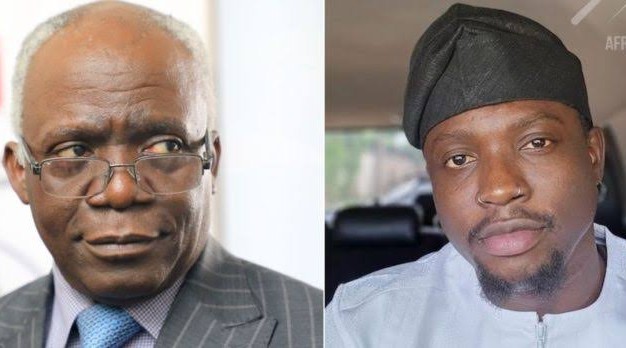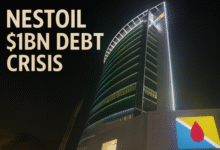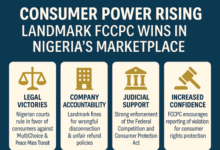VDM Loses Initial Round in N1bn Defamation Suit by Falana, Falz: Court Awards N200k in Costs, Demands Defence Filing

In a high-profile legal faceoff that underscores the growing intersection of celebrity influence, digital activism, and defamation law in Nigeria, the Ikeja High Court has dismissed the preliminary objections filed by social media provocateur Martins Otse, popularly known as VeryDarkMan (VDM), in a N1 billion libel suit instituted by human rights icon Femi Falana (SAN) and rapper-lawyer Folarin Falana (Falz).
Presiding judge Justice Fimisola Azeez not only upheld the jurisdiction of the Lagos High Court in the matter but also awarded N200,000 in total costs—N100,000 each to the senior Falana and his son. The court directed VDM to file his substantive defence, setting the next hearing for July 8, 2025.
Background: A Digital Commentator Meets Legal Reality
The case stems from a viral video posted by VDM on September 24, 2024, in which he referenced a leaked audio conversation involving controversial cross-dresser Bobrisky, suggesting that the Falanas had allegedly influenced judicial outcomes in Bobrisky’s favour. The Falanas swiftly denied the allegations, labeling the assertions as defamatory and malicious, and subsequently filed a N1 billion suit—demanding N500 million each in damages.
VDM’s legal team, led by Marvin Omorogbe, had filed a preliminary objection, claiming the alleged defamatory act occurred outside Lagos jurisdiction and therefore should not be tried in the state. But the court dismissed the argument as unfounded, siding with the counter-affidavit and submissions of the Falanas’ legal team, led by Ernest Olawanle and Femi Akinyemi.
BRANDECONOMY Analysis: Beyond Court Drama — The Business of Reputation in the Digital Age
This case marks yet another inflection point in the evolving tension between social media freedoms and the legal limits of free expression in Nigeria. For public figures like the Falanas—whose brand equity is tied to integrity, social justice, and activism—unchecked allegations, and possible defamation, particularly from viral digital influencers, pose significant reputational and financial risks.
In an era where “likes and views” often rival facts and due process, defamation law is being reasserted as a tool of brand protection—not just legal redress. With over a million followers and an outspoken style that frequently toes the line between truth and trolling, VDM’s platform has proven influential, but now potentially legally perilous.
“Digital influencers are fast learning that virality is not immunity,” a Lagos-based media lawyer told BRANDECONOMY. “The reputational damage from false claims can be massive—especially when the targets are public figures with strong legal credentials.”
What’s at Stake: Legal Precedents, Media Responsibility, and Public Perception
The Falanas are not only seeking financial compensation but also a public apology across VDM’s platforms and a national daily publication, alongside a perpetual injunction to restrain further defamatory content. If granted, the ruling could become a landmark precedent in Nigeria’s digital lawscape—where enforcement of online accountability remains elusive.
This case also brings into sharp focus the legal exposure of social media influencers, many of whom operate without editorial checks, legal oversight, or an understanding of the defamation threshold.
Where Things Stand
- Objection Dismissed: The court affirmed jurisdiction and ruled that VDM must face the suit.
- N200,000 in Costs: VDM is to pay both claimants N100,000 each for time and resources expended on the objection.
- Defence Mandated: The court directed the influencer to file a formal defence before July 8.
- Multiple Legal Failures: A preemptive suit filed by the claimants was earlier struck out by Justice Mathias Dawodu, and a motion for stay of proceedings filed by VDM was also denied—leaving the substantive case before Justice Azeez as the key battleground.
BRANDECONOMY Verdict: A Reputation Reckoning
This isn’t just a legal scuffle. It is a clash between digital populism and legal probity, between virality and verifiability. For brands, public figures, and media practitioners, the case is a clarion call to re-examine the cost of speech in a digital economy where every post is potentially a court case waiting to happen.
As the July 8 date looms, all eyes will be on how VDM responds to the claims—and whether this case becomes a blueprint for safeguarding reputational capital in Nigeria’s volatile social media terrain.











